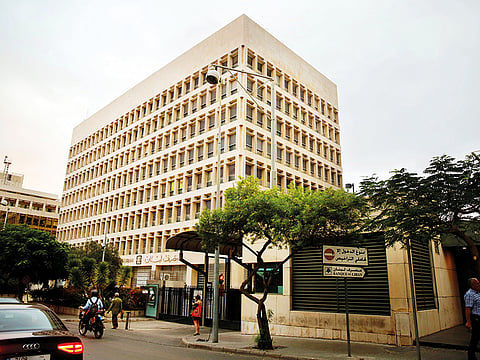Lebanon slammed by double credit rating downgrade
Nation’s bondholders brace for a potential default next month.

Beirut: Lebanon was downgraded deeper into junk territory by two of the three biggest credit rating companies Friday as the nation’s bondholders brace for a potential default next month.
S&P Global Ratings cut the country’s long-term foreign currency rating to CC, following a similar reduction by Moody’s Investors Service to Ca earlier in the day. That puts Lebanon among the likes of Argentina, Mozambique and the Democratic Republic of Congo, other nations teetering near default.
The moves cap a turbulent week in which a bank run intensified, the World Bank warned of “implosion” and the yield on Lebanon’s Eurobonds that mature next month skyrocketed to more than 1,000%.
“A distressed exchange or unilateral default on Lebanon’s commercial debt is virtually certain,” S&P analysts led by Zahabia Gupta wrote in a statement. “Social unrest, a contracting economy, and intensifying liquidity pressures in the private sector will make it politically difficult to repay creditors in 2020.”
Meantime, Moody’s Investors Service said holders of Lebanese bonds may lose as much as two-thirds of their investment in a debt restructuring that’s become almost inevitable. The Middle Eastern nation’s plans for an economic overhaul will probably incur substantial losses for domestic and foreign creditors, including bond write-downs in the range of 35%-65% of face value, the rating firm said in a statement on Friday.
The downgrades come as officials in Beirut hold technical negotiations with the International Monetary Fund on how to fix an economy suffering an acute shortage of dollars before a wall of looming debt payments. The most immediate question for Prime Minister Hassan Diab is whether to repay a $1.2 billion Eurobond maturing in a few weeks.
“Creditors will likely incur substantial losses in what seems to be an all but inevitable near-term government debt restructuring,” Moody’s said.
An IMF delegation arrived in Lebanon this week to assess the sustainability of government debt that’s exceeded 150% of economic output. The country is in the process of hiring legal and financial advisers to help manage its liabilities, including $30 billion of international bonds.
Track Record
The central bank and local lenders have been rationing U.S. dollars, resulting in a black market rate that’s about 40% higher than the official peg, according to Moody’s calculations.
While Lebanon has never defaulted on its debt, some lawmakers and officials have called on the government to skip Eurobond payments and use remaining reserves to finance imports, as informal capital controls hurt trade and businesses.
In the baseline scenario for Moody’s, Lebanon will pursue an orderly restructuring within the scope of an international aid program. An “extremely weak track record on policy implementation” was a risk to securing external financing, it said. Still, the haircut forecast by Moody’s is smaller than the losses priced by bond traders.
Lebanon’s sovereign bonds with maturities of more than two years trade near 30 cents on the dollar, implying reductions to present value of about 70%. Analysts at Goldman Sachs Group Inc. have predicted write-downs around 65%.



